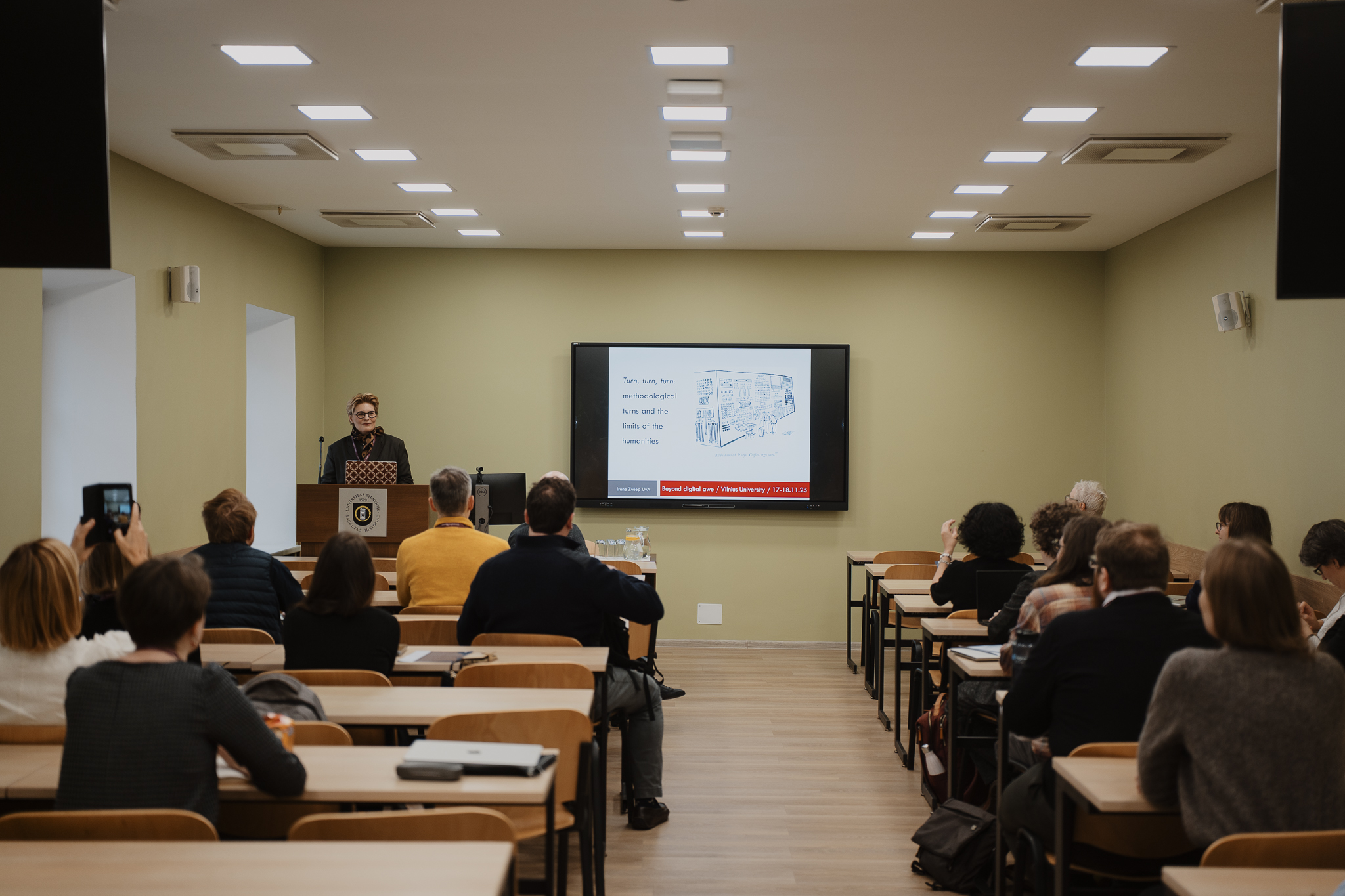International Conference at VU Explores the Intersection of Digital Humanities and Jewish Studies
 On 17–18 November, the Faculty of History at Vilnius University (VU) hosted an international conference dedicated to examining the evolving relationship between Digital Humanities (DH) and Jewish Studies.
On 17–18 November, the Faculty of History at Vilnius University (VU) hosted an international conference dedicated to examining the evolving relationship between Digital Humanities (DH) and Jewish Studies.
According to the main organiser, Dr Tomasz M. Jankowski, the rapid expansion of DH over the past decade has reshaped academic research worldwide. “Digital Humanities has become one of the most dynamically developing academic fields,” he noted. “Yet, despite numerous initiatives, its integration into traditional humanities remains only partial. With this conference, we wanted to address not only what makes Jewish Studies digital, but also what makes Digital Humanities Jewish.”
The event focused on three themes: experimenting, sharing, and engaging.
Experimenting
DH has always been defined by methodological innovation – through the creation of new digital tools or the adaptation of techniques from other fields. These methods matter not only for the results they generate but also for their capacity to broaden scholarly imagination by enabling new ways of reading images, mapping geolocated objects, or analysing large textual datasets.
As Dr T. M. Jankowski emphasised, “The techno-progressive and sometimes counter-cultural ethos of radical DH resonates strongly with many intellectual currents within Jewish Studies.”
Sharing
DH promotes new forms of collaboration through shared repositories, open datasets, and FAIR principles (findable, accessible, interoperable, reusable). However, openness also brings practical and epistemological challenges.
“If DH is about dissolving disciplinary boundaries,” Dr T. M. Jankowski remarked, “we must ask whether the category of ‘Jewish’ still functions as a meaningful framework when knowledge becomes increasingly modular, networked, and digitally distributed.”
Engaging
The introduction of DH often creates tension between innovating academic methods and expanding societal impact. Are audiences outside the university more ready for digital transformation than institutions themselves? The conference examined how digital repositories, museums, libraries, and archives can promote more profound citizen engagement and transform public interaction with cultural heritage.
The conference was jointly organised by Vilnius University and the University of Wroclaw. The organising committee members were:
Vilnius University: Tomasz M. Jankowski (head), Prof. Jurgita Verbickienė, Dr Sergii Gurbych, Dr Kseniya Tserashkova.